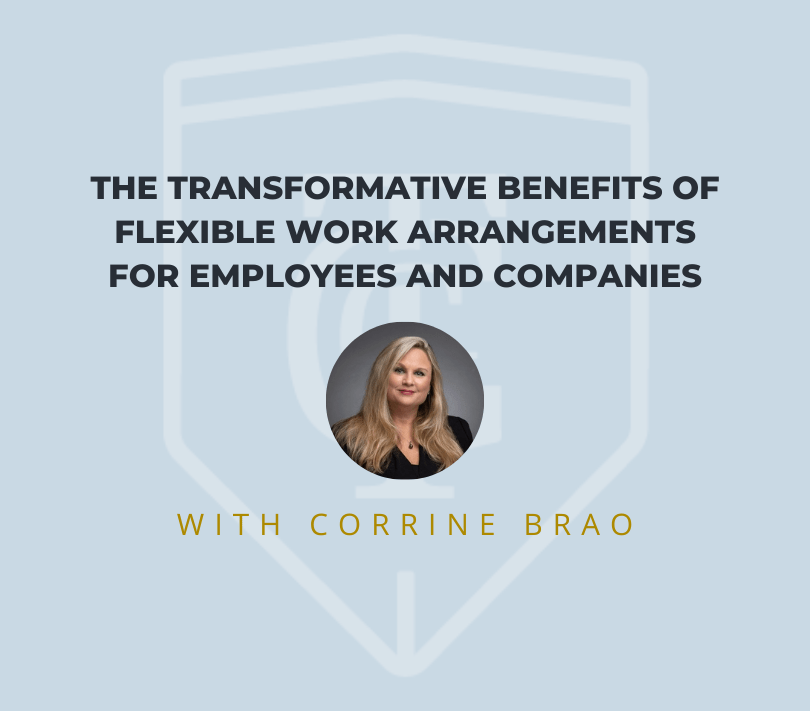
In recent years, the traditional 9-to-5 office grind has evolved into a more flexible approach to work. Flexible work arrangements, characterized by remote work, flexible hours, and alternative workspaces, have gained immense popularity. This paradigm shift is driven by the realization that the one-size-fits-all approach no longer meets the diverse needs of today’s workforce or the dynamic demands of modern business. Embracing flexible work arrangements brings forth a plethora of advantages, not only for employees seeking a better work-life balance but also for companies aiming to enhance their productivity, talent retention, and overall success.
Empowering Employees: One of the most compelling reasons for the adoption of flexible work arrangements is the empowerment it offers to employees. Flexibility in work hours and location allows employees to tailor their schedules to their individual preferences and life circumstances. This freedom enables better work-life integration, leading to reduced stress levels, improved mental health, and enhanced overall job satisfaction. Employees are better equipped to manage personal responsibilities, such as childcare, without compromising their professional commitments. Consequently, job turnover decreases as employees experience a higher level of job fulfillment, which in turn translates into improved loyalty and commitment to the company.
Boosting Productivity: Contrary to the skepticism surrounding remote work, studies have consistently shown that flexible work arrangements can actually boost employee productivity. Freed from the constraints of a rigid office environment, employees often find themselves more capable of focusing on tasks without the distractions common in traditional office settings. Additionally, employees appreciate the lack of daily commutes, resulting in saved time and reduced stress. This surplus of time can be channeled into work-related tasks, leading to higher levels of output.
Access to a Global Talent Pool: For companies, embracing flexible work arrangements expands their talent pool beyond geographic constraints. By allowing remote work, businesses can tap into a diverse range of candidates from different parts of the world, each bringing unique perspectives and skills to the table. This increased diversity can lead to improved problem-solving, creativity, and innovation, ultimately benefiting the company’s bottom line.
Enhanced Employee Retention: Flexible work arrangements play a pivotal role in retaining valuable employees. Offering the flexibility to balance work and personal life demonstrates an employer’s commitment to the well-being of their workforce. Employees who feel supported in their personal lives are more likely to remain loyal to their employers. This not only reduces turnover costs but also fosters a positive company culture based on trust and mutual respect.
Reduced Overhead Costs: Companies that adopt flexible work arrangements can significantly reduce their overhead costs. Scaling down office space requirements translates to lower real estate expenses and utility bills. By embracing remote work, companies can redirect these funds toward other essential areas, such as employee development, technology infrastructure, or marketing initiatives.
Environmental Impact: Flexible work arrangements have a positive impact on the environment as well. With fewer employees commuting to the office, there is a reduction in traffic congestion and carbon emissions. This aligns with corporate social responsibility goals and can enhance a company’s image as an environmentally conscious organization.
Adaptability and Resilience: The COVID-19 pandemic underscored the importance of flexibility in work arrangements. Companies that had already integrated remote work policies were better positioned to continue operations during lockdowns and restrictions. This adaptability not only ensured business continuity but also showcased the resilience of companies that could swiftly transition to remote work setups.
Overall, the shift towards flexible work arrangements has proven to be mutually beneficial for employees and companies alike. Employees experience increased job satisfaction, improved work-life balance, and reduced stress levels, while companies enjoy heightened productivity, enhanced talent retention, and cost savings. As the modern workforce continues to evolve, businesses that embrace flexibility are poised to thrive in a rapidly changing landscape, setting the stage for a more productive, engaged, and resilient workforce.
About Corrine Brao
 Corrine joined The Christopher Group in 2022. She brings 29 years of human resources expertise working within the high-end resort, club, retail, and real estate industries. She has led the human resources divisions for multiple luxury resorts and clubs that include the Breakers, The Boca Raton Resort & Club, Naples Grande Resort and Club, The La Playa Beach Resort & Club, and most recently was the VP of Human Resources for Premier Sotheby’s International Realty and The Lutgert Group in Naples, Florida. She loves working in Human Resources as it allows her the opportunity to make meaningful connections, provide mentorship, and most importantly the ability to help people. To learn more about Corrine visit her bio page.
Corrine joined The Christopher Group in 2022. She brings 29 years of human resources expertise working within the high-end resort, club, retail, and real estate industries. She has led the human resources divisions for multiple luxury resorts and clubs that include the Breakers, The Boca Raton Resort & Club, Naples Grande Resort and Club, The La Playa Beach Resort & Club, and most recently was the VP of Human Resources for Premier Sotheby’s International Realty and The Lutgert Group in Naples, Florida. She loves working in Human Resources as it allows her the opportunity to make meaningful connections, provide mentorship, and most importantly the ability to help people. To learn more about Corrine visit her bio page.

